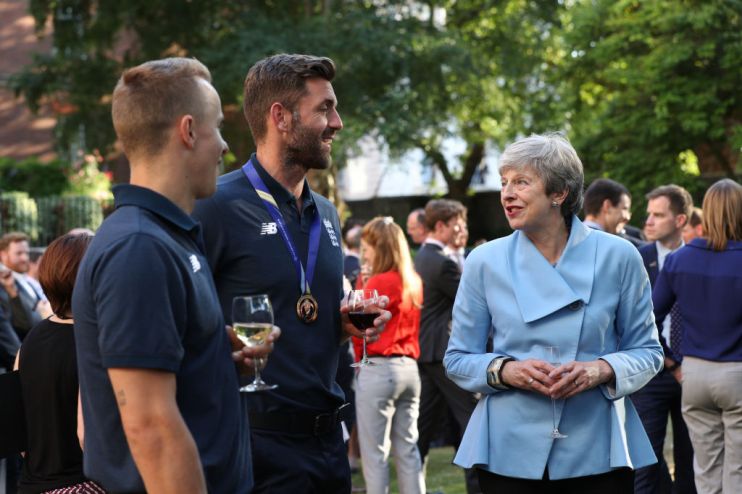The Club of Former Prime Ministers welcomes its latest member: Theresa May

With Boris Johnson parading into Downing Street and the drama of the chopping and changing of cabinet, it’s easy to forget that Theresa May too has acquired a new role: former Prime Minister.
It is a peculiar position to be in. One is freed from the constraints of parliamentary ambition, but also chastened by the defeat or retreat which necessitates a return to the backbenches.
Like Sir John Major before her, May found immediate succour in going to a Test match. After the summer recess she will, however, have to choose how she manages her new position.
Looking back at previous members of the Former PM Club, there are interesting precedents for her to follow.
One option, already dismissed by May, is to get out entirely. David Cameron departed Westminster to spend more time with his luxury shed almost immediately after resigning, writing his memoirs and having a good think about what he’d done.
Tony Blair too left the Commons when his premiership was over, filling his time with lucrative but dubious private sector appointments.
The latest departed leader may soon decide to join them in abandoning politics for familiar ex-PM activates, like chairing cricket clubs, chancellorships of universities, and the inevitable memoirs. A place in the Lords is also likely, allowing her to champion less controversial causes and advance her legacy. By the next election she may simply want to relish retirement.
For the moment, however, she’s staying. And May’s promise to remain on the green benches may do more than disappoint the prospective candidates who have been eyeing up her safe seat.
She will feel no need to kowtow to Boris, and every vote will be viewed as a comment on her successor’s actions. Having seen her own attempts to pass a deal falter, she becomes a lightning rod for opposition to any plans Boris puts before the house.
May would not be the first former PM to see a future in being a pain to their successor. Edward Heath chose to spend a further 27 years on the backbenches following his replacement by Margaret Thatcher. He was a persistent critic of her and her ideological direction, often speaking out against her in the Commons.
Upon her election victory in 1979, Thatcher offered to make Heath ambassador to the US or secretary general of Nato; he refused both, choosing to stay in the Commons until 2001. His rejection of her overtures was dubbed “the incredible sulk” by colleagues.
Harold Macmillan, meanwhile, returned to politics by accepting the customary Earldom granted to ex-PMs. Despite being ennobled by Thatcher, he used his maiden speech in the Lords to attack her record, describing the striking miners as “the best men in the world, who beat the Kaiser’s and Hitler’s armies and never gave in.”
At a dinner with the Tory Reform Group, he criticised her privatisation policies, comparing them to an old family selling off “all that nice furniture that used to be in the salon”.
Thatcher herself took a different tack. Staying on the green benches for almost two years after leaving Downing Street, she enjoyed a cordial relationship with Major, whom she backed as her successor. Though relatively subdued as a backbencher, her political interventions became more strident after she stopped being an MP.
Major and Gordon Brown both opted to quietly see out one term in opposition, using their retirement to make rare but high level interventions, including around the EU and on the issue of Scottish independence.
It remains to be seen whether May will seize upon her elder stateswoman status to stand in Boris’ way, or withdraw to let him succeed where she failed. She started off a Remainer, and is close with the Tory MPs opposing no-deal. She will, however, be aware of the gravity of her position, and is unlikely to want to harm the party she has dedicated her life to too much. After so long on the front bench, she may well find quiet satisfaction in her beloved constituency.
Of course, May will not want to stay too quiet after Downing Street, lest she face the ignominy suffered by James Callaghan.
In the run-up to the 1997 election, he fielded a call from a keen New Labour canvasser. Over a decade after he left the Commons, and 18 years after he had been Prime Minister, the young woman asked him: “Have you ever thought of being a bit more active in politics?”
Main image credit: Getty
